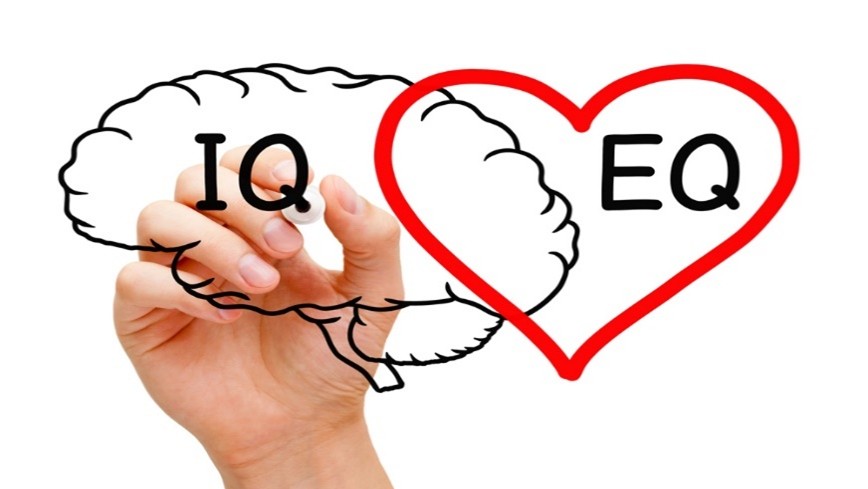
Why Emotional Intelligence Matters More Than Ever
Artificial intelligence is reshaping nearly every aspect of the modern workplace—from customer service chatbots to predictive analytics, automation, and machine learning. As algorithms become more capable of performing technical, repetitive, and even creative tasks, a critical question arises:
What can humans do that machines can’t?
The answer lies in emotional intelligence (EQ)
While AI can process data at lightning speed, it lacks the ability to genuinely understand, connect, and lead through emotion. Emotional intelligence—our ability to recognize, understand, and manage our own emotions and those of others—is becoming the defining skill set that separates effective leaders, communicators, and collaborators from the rest.
What Is Emotional Intelligence?
Emotional intelligence refers to a set of soft skills that govern how we relate to ourselves and others. These include:
- Self-awareness: Recognizing your emotions and their impact
- Self-regulation: Managing emotional responses appropriately
- Empathy: Understanding others’ emotions and perspectives
- Social skills: Building trust, resolving conflict, and leading teams
- Motivation: Driving personal and professional growth from within
These skills don’t show up in code. They show up in conversations, decisions, negotiations, and leadership moments.
Emotional Skills in High Demand
A 2025 Lumenalta study of over 900 IT leaders found:
- 90% believe emotional intelligence is essential for innovation and remote work success
- 40% of workplace challenges are directly tied to low EQ
This research confirms what many of us already feel:
In an increasingly automated world, emotional intelligence isn’t just a soft skill—it’s a business imperative.
High-EQ employees are better at navigating change, fostering collaboration, and leading with resilience.
The AI Paradox: As Tech Evolves, So Must Our Humanity
As AI becomes more intelligent, it ironically makes humanity more valuable. Here’s why:
- Machines Can’t Build Trust
Trust is built through vulnerability, transparency, and emotional connection. These are deeply human attributes that AI can’t replicate, no matter how advanced its algorithms. - Decision-Making Requires Nuance
AI can offer data and probabilities—but in emotionally charged or high-stakes scenarios, emotional intelligence allows humans to weigh intuition, values, and relationships before making a decision. - Conflict Resolution Needs Empathy
AI can flag patterns of miscommunication, but it can’t navigate office politics or mediate a tense conversation. Empathy and listening are still uniquely human tools for de-escalating tension and moving toward resolution. - Leadership Is Emotional
AI doesn’t inspire people. Great leaders do. Vision, compassion, self-awareness, and emotional regulation are essential traits of leadership that simply can’t be coded.
Why EQ Is the New Competitive Edge
Organizations are recognizing that high-EQ employees are more adaptable, resilient, collaborative, and effective—especially during change and uncertainty.
And here’s the good news: unlike IQ, emotional intelligence can be learned, practiced, and improved over time.
Whether you’re leading a team, managing client relationships, or making strategic decisions, emotional intelligence enables you to do it with clarity, composure, and connection.
How to Strengthen Your Emotional Intelligence in a Tech-Driven World
- Practice self-awareness: Notice how you feel under pressure and how those emotions affect your choices.
- Cultivate empathy: Ask, “What might this person be experiencing that I don’t see?”
- Pause Six-seconds before reacting: Give yourself six-seconds before choosing to respond
- Seek feedback: Emotional intelligence grows with honest input from others.
- Develop emotional vocabulary: The more precisely you can name your emotions, the more effectively you can manage them.
Conclusion: The Human Advantage Is Here to Stay
AI will continue to evolve and enhance the way we work—but it will never replace the need for authentic human connection.
Emotional intelligence is no longer just a “nice-to-have”—it’s a must-have skill for anyone who wants to thrive in a world where data is abundant, but connection is scarce.
In the age of artificial intelligence, your greatest asset is still your emotional intelligence.
Dr. Patty Ann
#EmotionalIntelligenceInTheAIEra #EQLeadership #SoftSkillsMatter #TheHumanEdge #FutureReady #LeadWithEQ
